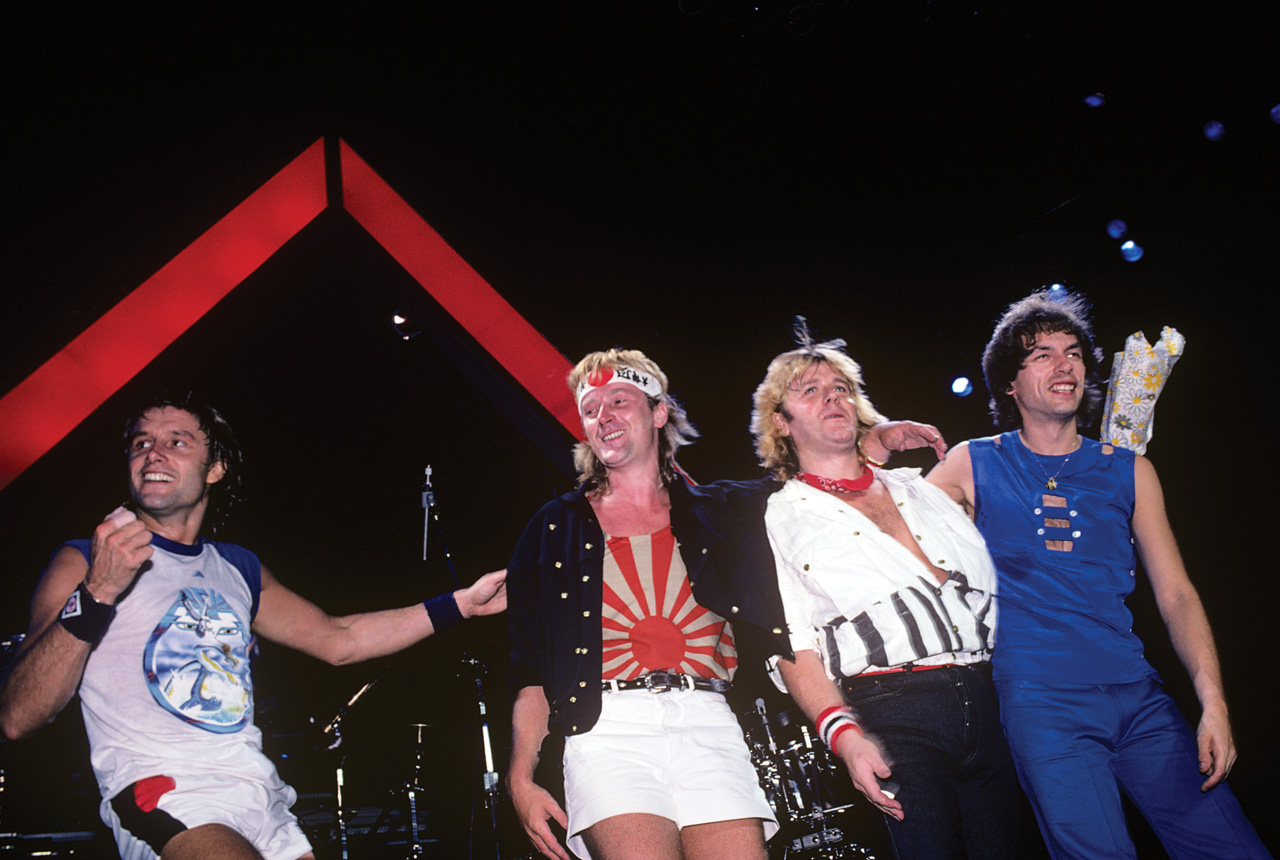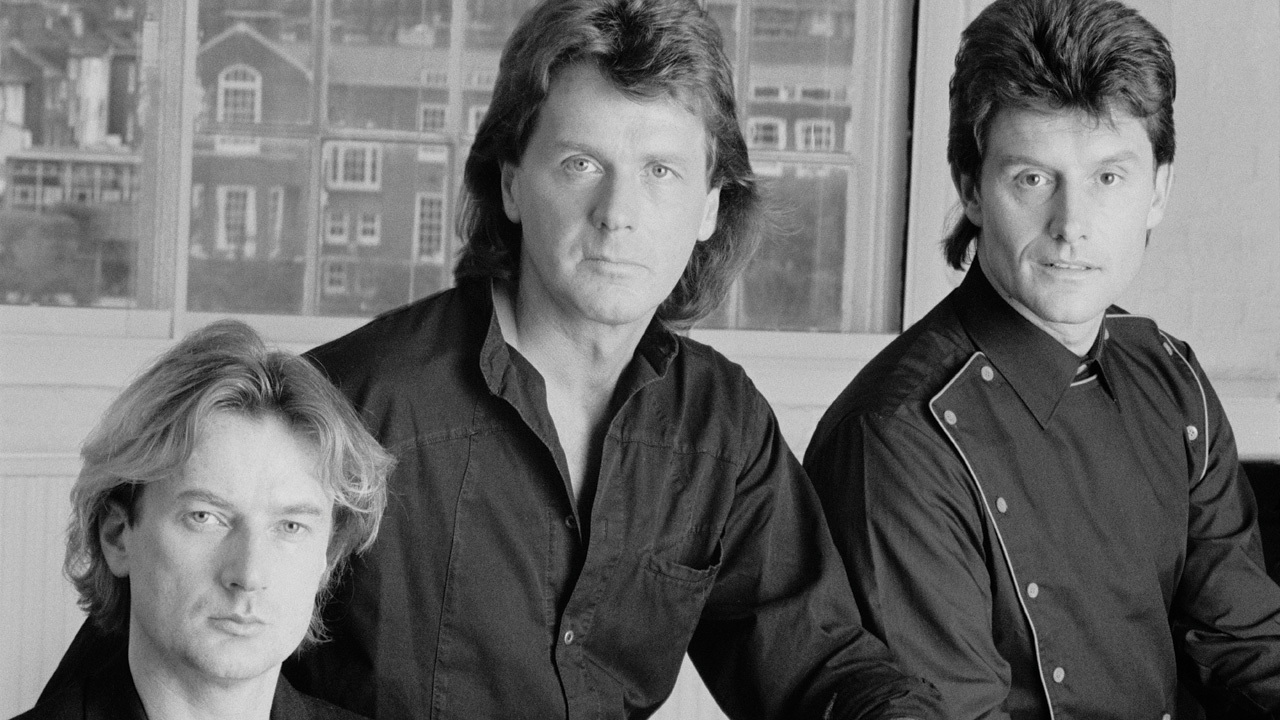For Geoff Downes, the loss of John Wetton goes beyond their professional relationship.
“We were very close for so long, and so his death is a big blow for me. Listening recently to many songs with which he was associated over the years has made me realise what an amazing and diverse career he had. I count myself fortunate to have been able to work with him over such a lengthy period of time.”
Downes and Wetton first met in early 1981, in the London office of Asia manager Brian Lane.
“We just got chatting there. Obviously, I knew about John because by then he’d already had such an illustrious career with bands like King Crimson and UK. But from the start, we naturally clicked. You see, for all his involvement with sophisticated progressive rock bands, at heart John was very much a song-oriented musician. Pet Sounds was his favourite album. And I was also all about the songs. Yes, I came from a more pop background, but we immediately recognised we had like minds.”
Working on the material for what would become the huge-selling self-titled Asia debut album in 1982 immediately showed there was an instinctive chemistry between the pair.
“We both had sacks of ideas at the start, and began to piece these together into the songs everyone knows from that album. I think I’m right in saying that the first track we completed was Sole Survivor. It took us half an hour to get the substance of that sorted. I recall that we had the television on in the background, and there was a classic tennis match going on at Wimbledon at the time, between Björn Borg and John McEnroe – that was the summer of ’81. Both of us were big sports fans. We’d get together in the morning and then work through until we got a song done. Then we’d head off to the pub for the rest of the day!”

Downes has huge respect for Wetton’s innate musical abilities.
“I think he shared a lot with Chris Squire, in that he understood the way in which the bass lines could be manipulated to bring out harmonies. He also had a great sense of melody, and what would work. Like me, John was weaned on English choral music, which is where those anthemic choruses in Asia came from. Neither of us were blues guys, but had a liking for European music.
“John also had amazing memory for things we might have worked on years before, but never finished. I’d say he almost had a photographic memory. When we got back together in early 2000 to write for the Icon project, he would bring up suggestions from songs we’d been working on a long time previously. Things I had long forgotten about. But they were clear in his mind, and he felt an idea from one of those half-finished songs could work when slotted into a new composition. It was amazing the way he could recall these at will.”
Downes does recall that Asia’s immediate success did put an unwelcome pressure on their writing partnership, and it affected Wetton enormously.
“Because John and I had come up with the big songs on the Asia album, the record label wanted more of the same from us. John really did feel the pressure when we started to write for the Alpha album, and I have to admit he wasn’t in a good place. It wasn’t the way we wanted to write, and it had an impact on the dynamic of our partnership.”
Wetton and Downes drifted apart as Asia split up in 1986, but the latter insists it was never a case of the two falling out.
“I went off to do production, while John did solo albums. For a time, we didn’t talk much. But that was never because we had any arguments. It was because our careers were going in different directions. We did work together again at the end of the 80s. But it was really in 2000 that things got back on track again with the two of us.”
Not only did they work on albums under the Icon banner, but were also part of the reunion of the classic Asia line-up, when it was put back together in 2006.
“Even after all this time apart, it was very clear that what we had was very special. I also realised that John was such an enormous talent. There was such a depth to his musical and lyrical appreciation, and he was certainly a giant in the prog world.”
For Downes, one of the crucial aspects of Wetton’s songwriting strength was his amazing capacity for coming up with powerful and evocative words.
“John doesn’t get the credit he deserves for the way in which he wrote lyrics. But that was one of his strengths. I believe the reason for us that he was able to dig deep into his own background and experience, and bring a really personal colour to what he was writing about. He was never afraid to wear his heart on his sleeve, and to use his own life as lyrical inspiration.”
As far as Downes is concerned, there’s one song that perfectly represents the magic of his relationship with Wetton. And that goes back to the first Asia album.
“I would go for Only Time Will Tell, because this was the embodiment of the way we would feed off each other. That really was a song where it was 50% down to John and 50% down to me. John’s lyrics here are really poignant and emotional. You can sense depth in the line, ‘It’s in your eyes/There’s no disguising it.’ To John, the eyes were so important, and he put mentions of them into a lot of songs. He saw the eyes as giving what he wrote an emotional presence, and sums up the way he would bear his soul.
“For me, having the opportunity to work so closely with such an amazing man was a privilege.”
An extraordinary life: John Wetton, 1949-2017

